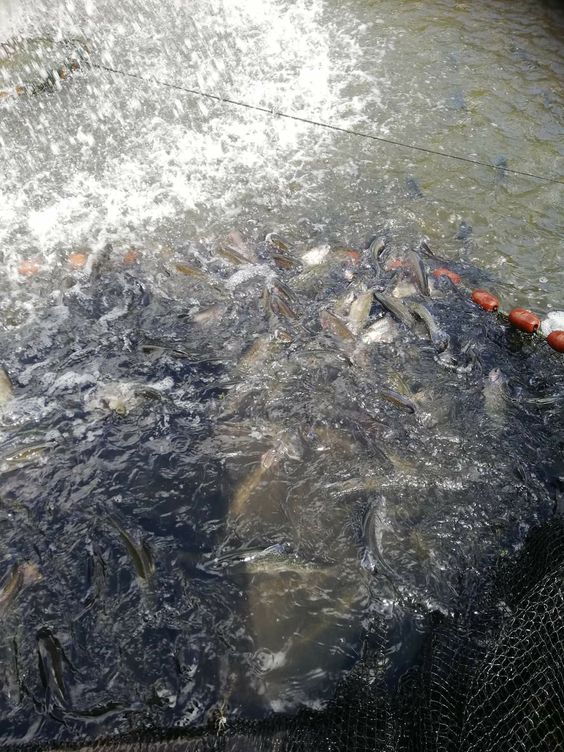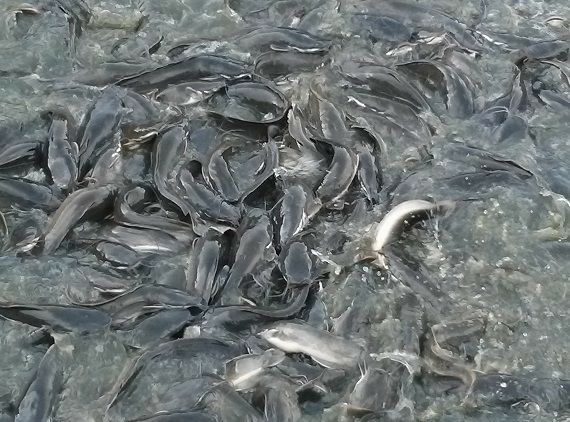Fisheries Management System: Ensuring a Sustainable Future for Our Oceans
Fisheries Management System are a vital resource, providing food security and economic benefits to billions of people worldwide. However, decades of unregulated fishing practices have pushed many fish populations to the brink of collapse. To ensure the continued health of our oceans and the fisheries that depend on them, a robust Fisheries Management System (FMS) is crucial.
Contents
What is a Fisheries Management System?
A Fisheries Management System (FMS) is a comprehensive framework designed to regulate and manage fishing activities in a sustainable manner. It involves a multi-faceted approach that encompasses various stages, from data collection to enforcement.
Information Gathering and Analysis:
- Scientific Data Collection: This involves gathering crucial data on fish stocks, their distribution, growth rates, and reproductive cycles.
- Habitat Assessment: Fisheries Management System,Understanding the ecological conditions of fish habitats, including water quality, temperature, and salinity, is essential for effective management.
- Socioeconomic Analysis: Analyzing the social and economic impacts of fishing on coastal communities, including employment, income generation, and food security.
Planning and Goal Setting:
- Sustainable Yield: Defining sustainable catch limits to prevent overfishing and ensure the long-term health of fish populations.
- Ecosystem-Based Management: Fisheries Management System,Considering the broader ecosystem, including other marine species and habitats, in management decisions.
- Socioeconomic Objectives: Balancing ecological sustainability with the social and economic needs of fishing communities.
Stakeholder Consultation:
- Involving Key Players: Engaging fishers, scientists, policymakers, and other stakeholders in the decision-making process.
- Collaborative Management: Fisheries Management System,Fostering partnerships between government agencies, industry, and non-governmental organizations.
- Community-Based Management: Empowering local communities to participate in managing their fisheries resources.
Decision-Making and Policy Formulation:
- Regulatory Measures: Developing and implementing regulations, such as catch quotas, size limits, and gear restrictions.
- Spatial Management: Fisheries Management System,Establishing marine protected areas and zoning to protect critical habitats and spawning grounds.
- Market-Based Instruments: Using economic incentives, like fisheries quotas and taxes, to promote sustainable fishing practices.
Resource Allocation and Capacity Building:
- Allocating Resources: Fisheries Management System,Ensuring adequate funding and personnel for effective management and enforcement.
- Capacity Building: Training fishers, scientists, and policymakers in fisheries management techniques and technologies.
- International Cooperation: Collaborating with other countries to address transboundary fisheries issues.
Monitoring, Control, and Surveillance (MCS):
- Monitoring Fish Stocks: Fisheries Management System,Tracking fish populations using scientific surveys and catch data.
- Controlling Fishing Activities: Fisheries Management System.Enforcing regulations through vessel monitoring systems, inspections, and patrols.
- Surveilling Marine Areas: Fisheries Management System,Using technology like satellite imagery and aerial surveillance to detect illegal fishing.
Evaluation and Adaptation:
- Performance Assessment: Fisheries Management System,Regularly evaluating the effectiveness of management measures.
- Adaptive Management: Fisheries Management System,Adjusting management strategies based on new information and changing conditions.
- Learning from Experience: Continuously improving management practices through lessons learned and best practices.
By implementing a well-designed and effective FMS, countries can ensure the sustainable use of their fisheries resources, protect marine ecosystems, and support the livelihoods of fishing communities.

Key Components of a Fisheries Management System
- Fish Stock Assessment: Regular scientific surveys to determine the abundance, health, and reproductive capacity of fish populations.
- Total Allowable Catch (TAC): Setting quotas on the total amount of fish that can be caught from a specific stock to prevent overfishing.
- Effort Control: Limiting fishing activities by restricting the number of vessels, gear types, or fishing days.
- Marine Protected Areas (MPAs): Establishing designated areas where fishing is restricted or prohibited to protect fish stocks and marine habitats.
- Fisheries Bycatch Mitigation: Implementing measures to reduce the unintended capture and mortality of non-target species, such as sea turtles, dolphins, and seabirds.
Advantages of a Fisheries Management System (FMS)
A well-implemented Fisheries Management System (FMS) offers numerous benefits, including:
Ecological Benefits
- Conservation of Fish Stocks: By setting sustainable catch limits and regulating fishing practices, FMS helps prevent overfishing and ensures the long-term health of fish populations.
- Protection of Marine Ecosystems: FMS can help protect critical habitats, such as coral reefs and spawning grounds, from damage caused by destructive fishing practices.
- Biodiversity Preservation: By managing fisheries in an ecosystem-based approach, FMS can help maintain biodiversity and the balance of marine ecosystems.
Economic Benefits
- Sustainable Livelihoods: FMS can support sustainable livelihoods for fishing communities by ensuring a steady supply of fish and promoting responsible fishing practices.
- Economic Growth: A healthy and well-managed fishery can contribute to economic growth by supporting related industries, such as seafood processing and tourism.
- Stable Markets: By regulating supply and demand, FMS can help stabilize fish prices and create a more predictable market environment.
Social Benefits
- Food Security: FMS contributes to food security by ensuring a reliable supply of fish, a vital source of protein for many communities.
- Community Well-being: By promoting sustainable fishing practices and supporting coastal communities, FMS can improve the overall well-being of coastal populations.
- Reduced Conflict: By addressing issues like overfishing and illegal fishing, FMS can help reduce conflicts between different user groups and promote cooperation.
Governance Benefits
- Effective Governance: FMS provides a framework for effective governance of fisheries resources, ensuring transparency, accountability, and equity.
- Compliance and Enforcement: By establishing clear regulations and enforcing them effectively, FMS can deter illegal, unreported, and unregulated (IUU) fishing.
- International Cooperation: FMS can facilitate international cooperation on fisheries management, addressing transboundary issues and promoting sustainable global fisheries.
By effectively implementing and monitoring FMS, countries can reap the benefits of sustainable fisheries for generations to come.

Benefits of a Strong Fisheries Management System
- Sustainable Fisheries: Maintaining healthy fish populations ensures long-term productivity and economic viability for the fishing industry.
- Healthy Marine Ecosystems: Protecting fish stocks contributes to the overall health and biodiversity of marine ecosystems.
- Food Security: Sustainable fisheries ensure a reliable source of protein for millions of people worldwide.
- Economic Benefits: Healthy fisheries support jobs in fishing, processing, and distribution sectors.
- Livelihoods: Well-managed fisheries provide secure livelihoods for fishing communities.
Challenges in Fisheries Management
- Lack of Data: In some regions, insufficient scientific data on fish stocks makes it difficult to establish effective management plans.
- Illegal, Unreported, and Unregulated (IUU) Fishing: IUU fishing undermines conservation efforts and poses a threat to sustainable fisheries.
- Climate Change: Rising ocean temperatures, acidification, and changes in ocean currents can impact fish populations and complicate fisheries management.
- Competing Interests: Balancing the economic needs of fishing communities with the need to conserve fish stocks can be a challenge.
The Future of Fisheries Management
Technological advancements are playing an increasingly important role in fisheries management.
- Electronic Monitoring: Using cameras and sensors on fishing vessels to track activity and ensure compliance with regulations.
- Satellite Vessel Tracking: Monitoring the location and movements of fishing vessels to deter illegal activity.
- Stock Assessment Modeling: Developing sophisticated computer models to better understand fish population dynamics and predict future trends.
By embracing new technologies, strengthening international cooperation, and promoting collaborative decision-making, we can build more effective FMSs and ensure the long-term sustainability of our fisheries and the health of our oceans.
A well-designed and effectively implemented Fisheries Management System is essential for safeguarding the future of our oceans and the fisheries that depend on them. By fostering collaboration between scientists, policymakers, fishers, and other stakeholders, we can ensure that future generations can continue to benefit from the bounty of the sea.






